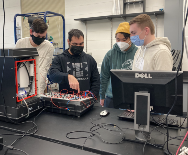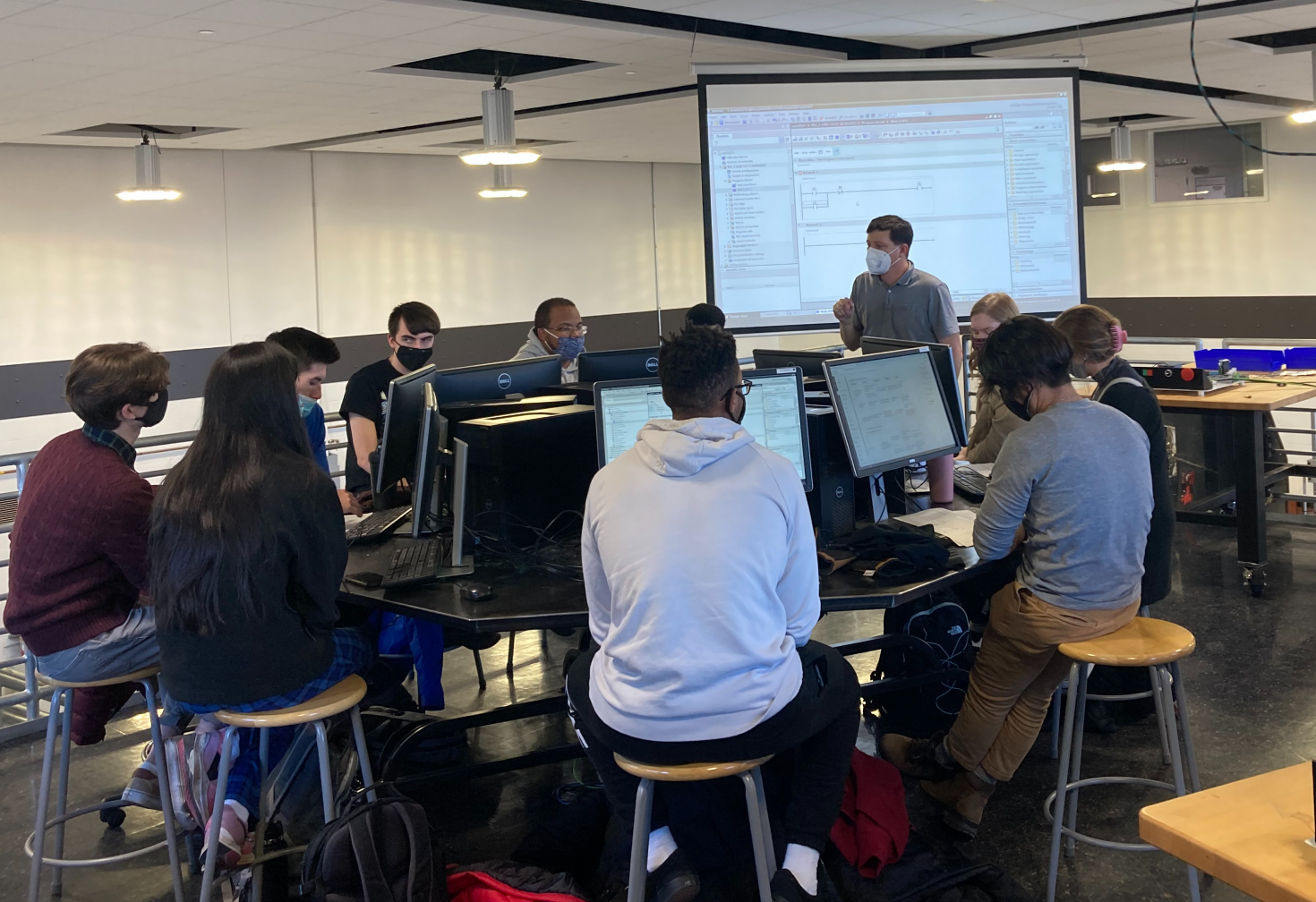Winter term program helps engineering students prepare for summer internship opportunity

Systems Automation Springboard to Internships (SASI) is a workshop that engineering students can sign up for during Miami University’s winter J-term. This workshop helps train students prior to a targeted summer internship in the areas of systems, process control and automation.
SASI provides a path to attract and develop students for future careers with the companies that
sponsor the program. The workshop provides training prior to the internship so the students can be more productive during the internship.
The students, possessing significant relevant training, help the company focus on providing a rewarding internship experience and allow them to directly recruit these students for full-time employment after graduation.
A key contributor to this program, Dr. Douglas Coffin, had this to say for students considering signing up for SASI: “There is a skills gap between student learning and industry needs and providing this training prepares students to be familiar and have experiences that will make the internship more rewarding. Students will then be more aware of the tremendous opportunity for careers in this area and be prepared to enter this field.”
 Coffin has been at Miami since 2002 and is a professor in the Department of Chemical, Paper, and Biomedical Engineering. His research is in the area of mechanics of paper materials with a current emphasis on the performance of corrugated packaging.
Coffin has been at Miami since 2002 and is a professor in the Department of Chemical, Paper, and Biomedical Engineering. His research is in the area of mechanics of paper materials with a current emphasis on the performance of corrugated packaging.
Another key contributor to this program is Dr. Jason Berberich, an associate professor who is also in the Department of Chemical, Paper, and Biomedical Engineering and has been at Miami since 2012. His research involves protein engineering and biocatalysis, but recently has been focused on applications of proteins in environmental monitoring and sustainability.
Along with other contributors inside and outside of the university, Coffin and Berberich appreciated that students get a blend of instruction from industry experts, faculty, and extensive hands-on experience from this program.
There are a number of hands-on exercises that students will work with during this program. There are some exercises that involve analysing large sets of data with Microsoft Excel or simulating dynamic processes with Simulink.
SASI also uses some software tools that simulate chemical processes for analyzing the behavior of complex processes and learning to design controllers. Students spend a significant amount of time learning to program Programmable Logic Controllers (PLCs) and design a Human Machine Interface (HMI). The workshop includes wet lab exercises where the students will design feedback and feedforward control systems for a level tank and a thermal system.
The workshop running during winter term allows for students to be involved with internships and have more of their time available to focus on the course material without being distracted by other classes or obligations. This would typically be an issue during the school year, but holding the workshop during this short period allows for a more focused environment to work in.
Students learn about the problems and challenges that a person working in automation and controls is likely to face, which can help them prepare for their future careers. Students also learn about the components of a control system, types of advanced control systems and basic dynamics.
Students also gain an appreciation for where the field is going and what controls and automation will look like in the future. Most importantly, students will be able to understand the technical terms and language of a control engineer and have a broad understanding of the field, preparing them for their summer internship and giving them a better understanding of the field.
The program is hoping to grow the program from 19 students this past winter to 30 students next winter. Students will be sponsored in the program by a company who pays the workshop fee and offers the student a paid summer internship.
Written by Gabby Benedict, CEC Reporter

